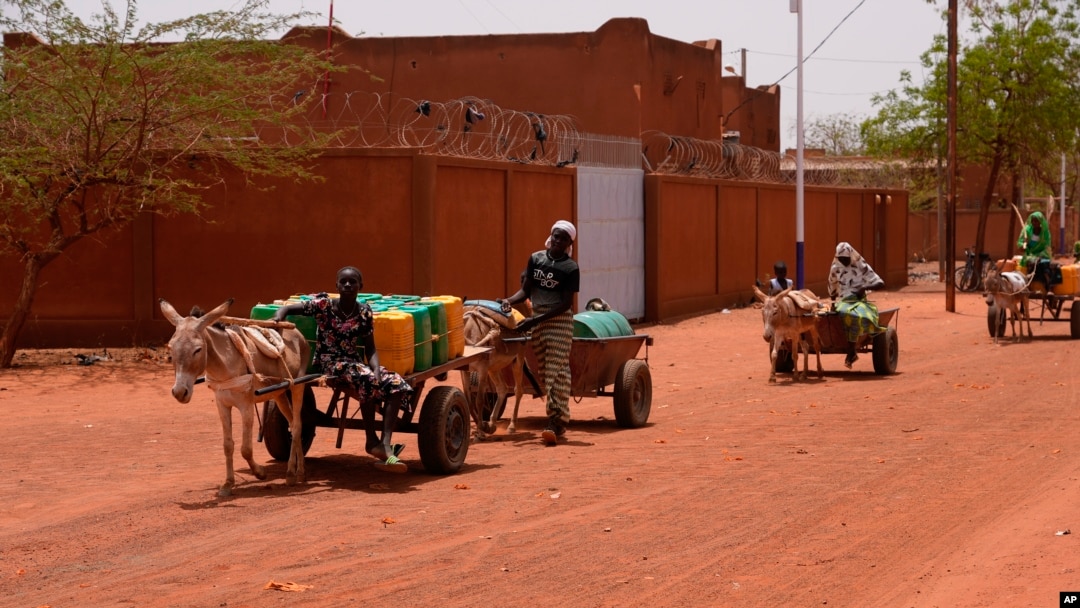African leaders are gathering in Malabo, Equatorial Guinea, for the African Union Extraordinary Summit, which will address the continent's growing humanitarian needs, violent extremism, climate change, and a series of military coups. But any relief for the residents of Djibo, a town in northern Burkina Faso near the Mali border, cannot come fast enough.
The city in the Sahel region — the vast area below the Sahara Desert — has been besieged since February by jihadists, preventing people and products from coming in and out and cutting off water supplies.
"We have been living here for three months. Animals are not being bought. Most of the animals I came with here died of hunger. When you sell five animals and go to the market you can't get a bag of food to eat. You can't even see food. You can look for food in vain." said Dadou Sadou, a displaced woman.
Conflict analysts say blockading cities is a jihadist tactic for asserting dominance and could also be an attempt to get Burkina Faso's new military junta, which seized power in January, to backtrack on vows to eliminate the jihadis.
“Militants resort to blockading when they see an opportunity to gain incentives in negotiating with the government and simultaneously send a message to their base that they are in control. It’s a bargaining card and a winning one,” said Laith Alkhouri, CEO of Intelonyx Intelligence Advisory, a group that provides intelligence analysis.
The World Food Program has been unable to transport food to Djibo since December as a result of the siege, and supplies are running low, according to Antoine Renard, the World Food Program's country director in Burkina Faso.
A UN team flew in to assess the situation but stayed for just a few hours due to the threat level. “The goods are not arriving anymore here. Animal and agricultural production is not possible because the people cannot go back to their villages,” U.N. resident and humanitarian coordinator Barbara Manzi told The Associated Press from Djibo this week.
Djibo was a busy economic centre before the unrest, with one of the largest and most important livestock markets in the Sahel. According to Alpha Ousmane Dao, Director of Seracom, a local relief organization in Djibo, 600 trucks used to reach Djibo monthly, but today it's less than 70.
The UN said Burkina Faso is experiencing its worst food crisis in six years, with more than 630,000 people on the verge of starvation.
Locals say that the jihadis have loosened restrictions in some areas, allowing for more freedom of movement, but that the army is now preventing residents from transporting food out of Djibo to other villages for fear of it being taken by the jihadis.
"Today there is nothing to buy here. Even if you have cash, there is nothing to buy. We came here with four donkeys and goats and some of them died because of hunger. We were forced to sell the rest of the animals and unfortunately prices of animals have decreased,” said cattle owner Mamoudou Oumarou.


